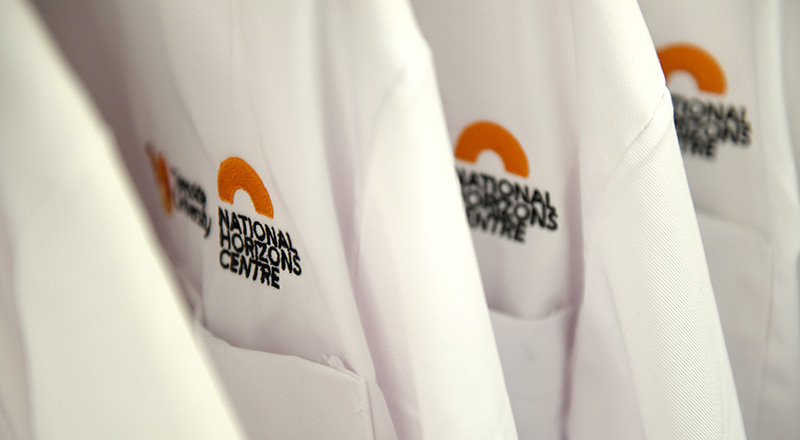Researchers collaborate on the development of sustainable cosmetics
Teesside University is part of an innovative collaboration with a biotech firm which has secured almost half a million pounds in funding to develop sustainable ingredients for the cosmetics industry.

Hexis Lab, a biotech firm which is working to improve sustainability within cosmetics, has been awarded £490k from Innovate UK, part of UK Research and Innovation (UKRI).
It is using cutting-edge technology and its own artificially intelligent (AI) platform, HexisPro X, to discover, analyse and test sustainable ingredients which can be used in its environmentally friendly cosmetic products.
Hexis Lab is collaborating with researchers from Teesside University’s National Horizons Centre and BiBer Chem Research.
Dr Muhammad Safwan Akram, Associate Professor (Enterprise and Knowledge Exchange) at Teesside University’s National Horizons Centre, is working with Hexis Lab.
He said: "We are delighted to collaborate with Hexis Lab on this project, which has the potential to revolutionise the cosmetics and personal care industries. It is our moral responsibility to move towards achieving the goal of net zero.
“This project demonstrates the importance of collaboration between academia and industry to develop innovative solutions that can have a positive impact on society, businesses and the environment."
We are delighted to collaborate with Hexis Lab on this project, which has the potential to revolutionise the cosmetics and personal care industries.
Dr Olusola (Sola) Idowu, founder and CEO of Hexis Lab, added: "We are thrilled to have secured this funding from Innovate UK, which will enable us to further advance our research into sustainable ingredients using synthetic biology.
“This collaboration with Teesside University, led by associate professor Dr M. Safwan Akram, an expert in synthetic biology, and BiBerChem Research, led by Prof Bernard Golding, a synthetic organic chemist, brings together our complementary strengths and expertise, and we are excited to see the results of our joint efforts in this important area.
“This project will support the economic prosperity of the Tees Valley region, allowing us to realise our goals as a manufacturer of high-value materials and help power the circular bioeconomy for international exports.”
In the News
Biotech Firm Secures Funding
Newcastle Journal, p.15, Print and Web, 22/05/2023
HexisLab has been awarded £490,000 from Innovate UK as part of a collaboration with Teesside University and BiBerChem Research.
HexisLab secure six-figure funding to deliver innovation project
Biopharma Reporter, Web, 21/05/2023
The collaboration with Teesside University will bring together its expertise in AI discovery process with the university's research in synthetic biology.
Huge grant for Newcastle firm helping to make safer cosmetics and drugs
MSN UK, Web, 19/05/2023
The collaboration brings together HexisLab's cutting-edge expertise in AI discovery process and Teesside University's research in synthetic biology.
Huge grant for Newcastle firm helping to make safer cosmetics and drugs
Yahoo! UK and Ireland, Web, 19/05/2023
HexisLab, a UK-based biotechnology company, has received a £490,000 grant from Innovate UK to develop a scale-up manufacturing process for its novel sustainable and green ingredients.
Grant to make greener cosmetics
Northern Echo, Print and Web, 18/05/2023
The project is expected to have a significant impact on the cosmetics, personal-care, and pharmaceutical industries.
Biotechnology company to scale-up with £490k grant
Insider Media Ltd, Web, 17/05/2023
HexisLab was awarded the funding in collaboration with Teesside University from Innovate UK - part of UK Research and Innovation (UKRI).
 Teesside University hosts groundbreaking hydrogen conference
Teesside University hosts groundbreaking hydrogen conference University supporting development of new £1m concrete plant
University supporting development of new £1m concrete plant Academic’s artwork on display at Middlesbrough station
Academic’s artwork on display at Middlesbrough station